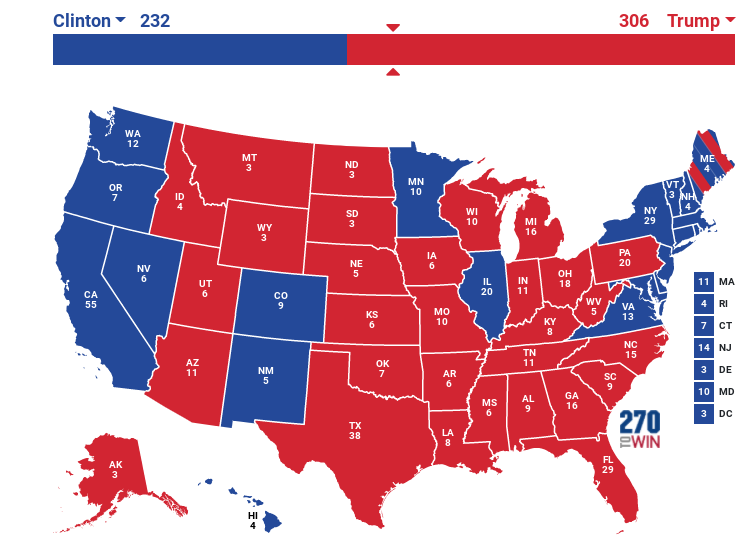The Electoral College’s Damaging Role in the Presidential Race
November 12, 2020
As possibly the most critical presidential election in the history of the United States approaches, people have debated whether or not the age-old Electoral College should remain. Simply put, this body of representatives votes based on how their respective state voted; if New Jersey votes democratically, all fourteen of its “electoral votes” will be given to the democratic candidate. To win, a presidential contender must amass two hundred and seventy votes.
Unfortunately, this system is rooted in flaws, therefore rendering it archaic and harmful. For one, it greatly affects campaigning. Instead of focusing on all states, a presidential wannabe will host large events in swing states, like Florida and Pennsylvania. This ignores a multitude of people within the country who also desire attention from their future leader.
Similarly, this means that a vote in California (a mainly democratic state) does not carry the same weight as a vote in Florida; since the 1990s, California has maintained a blue hue (meaning it consistently opts to nominate a democratic candidate). Therefore, efforts to encourage voters to go to the polls do not matter as much in a state like California since the result is somewhat guaranteed.
Currently, there have been five elections where the winner was not the individual with the “popular vote” (a term which refers to the choice of a majority of Americans): Jackson v. Adams, Tilden v. Hayes, Cleveland v. Harrison, Gore v. Bush, and Clinton v. Trump. Arguably, this means that the president was not actually selected by the will of the people; in theory, Clinton should be the president today as a majority of citizens elected her. Alas, the status quo prevented that.
Just as the actual wishes of United States residents have been ignored in previous elections, it is plausible that those desires will be disregarded again and again. Put simply, there is no guarantee that electors will follow the results in their respective state, thus defeating the purpose of the system. In Washington State, for example, three electors voted for a third party candidate despite Clinton winning the popular vote in that region. Those members were fined by the state, but that didn’t change the outcome of the selection process — instead of their votes being redistributed, they only incurred a minor penalty.
Who’s to say this will not be repeated in the upcoming general election? For all the people know, 538 people are at liberty to decide the president since they are not legally obligated to side with their constituents. All in all, this begs the question: will next week’s monumental race be observed by citizens, or a potentially corrupt governmental agency that destroys the purpose of our democratic republic?







